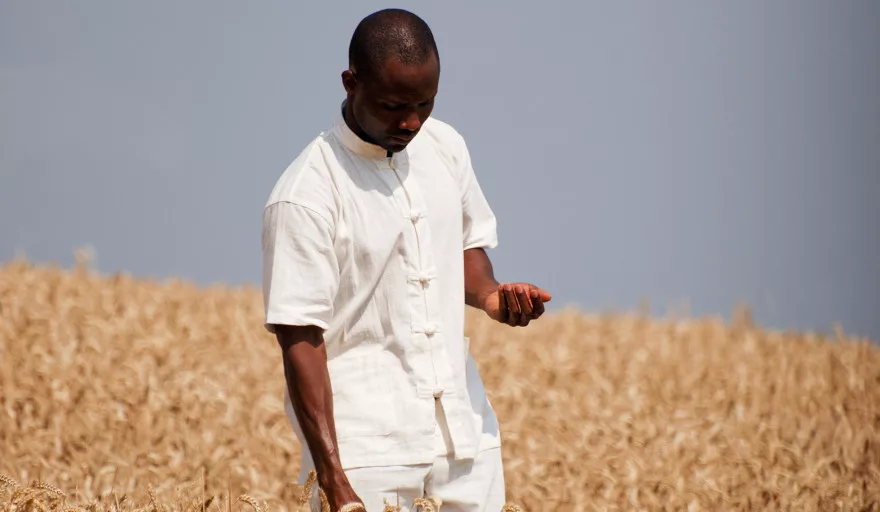
We examine how Nigeria is reducing its reliance on agriculture and branching out to other business ventures
Written by: Sean Galea-Pace
Nigeria is the most populous country in Africa.
As of 2020, there is an estimated 206 million people residing in the country and it is renowned as Africa’s biggest oil exporter, as well as possessing the largest natural gas reserves on the continent.
Its economy is the biggest in Africa and the 24th largest globally, worth nearly $450 billion and $1 trillion in nominal GDP and purchasing power parity respectively. The country is often regarded as an emerging market by the World Bank and is recognised as a regional power on the African continent, a middle power in international affairs, and an emerging global power.
Nigeria is multinational and a culturally diverse federation consisting of 36 autonomous states and the Federal Capital Territory. Nigeria’s most important crops include beans, rice, cashew nuts, groundnuts, cocoa beans, sesame, melon, maize, soybeans, bananas, and millet. Previously, the country was renowned for its export of groundnut and palm kernel oil. However, in the past few years, the rate of export of this produce has considerably reduced.
Agriculture in Nigeria
Despite the influence of oil, agriculture remains the core of the Nigerian economy and provides the primary source of income for the majority of Nigerians. However, the industry is experiencing many challenges, particularly an outdated land tenure system that constrains access to land, a very low level of irrigation development, limited approach of research findings and technologies, high cost of farm inputs, poor access to credit, inefficient fertiliser procurement and distribution, inadequate storage facilities and poor access to markets. This has meant that agricultural productivity has been kept low with high postharvest losses and waste.
While it is still one of Nigeria’s leading industries and employs two-thirds of the entire labour force, the production hurdles have considerably slowed the performance of the sector. During the past 20 years, value-added per capita in agriculture has risen by less than one percent annually. It is thought that Nigeria has lost around $10 billion in annual export opportunity from groundnut, palm oil, cocoa, and cotton alone as a result of a continuous decline in the production of those commodities.
Crop production increases haven’t kept up with population growth and it has meant that the resulting rise in food imports and declining levels of national food self-sufficiency. The primary factors that have undermined production has included reliance on rainfed agriculture, smallholder land holding, and low productivity as a result of poor planting material, low fertiliser application, and a weak agricultural system.
However, since 2015, economic growth has slowed. Growth averaged 1.9 percent during 2018, before stabilising at two percent during the first half of 2019. In production, growth during 2019 was mostly driven by services such as telecoms. Agricultural growth remains below potential as a result of continued insurgency in the Northeast and ongoing farmer-herdsmen conflicts.
Other business in Nigeria
The Nigeria fisheries subsector contributes around three to four percent to the country’s annual GDP and is a key contributor to the population’s nutritional requirements, consisting of around half of Nigeria’s animal protein intake.
In addition, the sub-sector creates employment and income for a range of artisanal fisherman and small traders. Despite capture fisheries declining, Nigeria has big potential in both marine and freshwater fisheries including aquaculture. However, Nigeria’s domestic fish production is still significantly below the total demand, which is anticipated to be around 60 percent of the fish consumed.
Alexander Booth, Managing Director at Kroll, outlines how stretched the Nigerian economy has been, in recent times, partly fuelled by the COVID-19 pandemic.
“Longstanding domestic and structural constraints have been exacerbated by shrinking oil revenues and the wider fallout from the coronavirus pandemic. GDP is contracting, and foreign direct investment (FDI) and portfolio inflows are both steeply down on last year,” he continues.
“Restricted access to foreign exchange makes the picture even worse for investors, manufacturers and corporates, as the Nigerian government has long used forex restrictions as a policy tool to block imports and boost domestic production.
“This has negative impacts for investors seeking to repatriate profits, further deterring new investors, and also increases default risks for domestic borrowers who have taken on foreign-denominated debt.”
However, as a result of its strategic location, Nigeria has a bright future which will enable it to take advantage of the increased demand across Africa and other parts of the developing world. In order to harness the potential for exponential growth, Nigeria’s government leaders must pursue reforms aimed at scaling productivity, raising incomes and delivering vital services such as healthcare and education more efficiently.
To increase productivity and incomes in the agricultural industry, the government could pursue land title reform aimed at opening more farmland without deforestation, expand the use of fertiliser and mechanised equipment and support a shift to more profitable crops.
In urban areas, productivity suffers from a significant degree of informal employment, sometimes even by major corporations. This means that Nigerians can remain in low-skill, low-paying jobs and deprive the economy of the dynamism that competitive small and medium-sized enterprises create. The rise of internet start-ups that have emerged in Nigeria has showcased the level of talent that the country has at its disposal and showcases the considerable untapped potential at its fingertips.






























